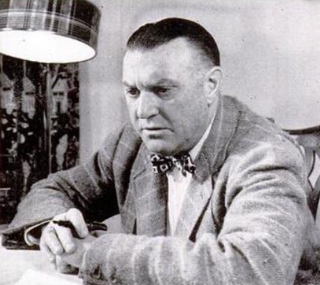A Quote by Jane Austen
His cold politeness, his ceremonious grace, were worse than anything.
Related Quotes
Socrates was the chief saint of the Stoics throughout their history ; his attitude at the time of his trial, his refusal to escape, his calmness in the face of death , and his contention that the perpetrator of injustice injures himself more than his victim, all fitted in perfectly with Stoic teaching. So did his indifference to heat and cold, his plainness in matters of food and dress, and his complete independence of all bodily comforts.
This is the amazing story of God’s grace. God saves us by His grace and transforms us more and more into the likeness of His Son by His grace. In all our trials and afflictions, He sustains and strengthens us by His grace. He calls us by grace to perform our own unique function within the Body of Christ. Then, again by grace, He gives to each of us the spiritual gifts necessary to fulfill our calling. As we serve Him, He makes that service acceptable to Himself by grace, and then rewards us a hundredfold by grace.
Our forefather Adam... used his freedom to turn toward what was worse and to direct his desire away from what had been permitted to what was forbidden. It was in his power 'to be united to the Lord and become one spirit with God...' (I Cor. 6:15). But Adam was deceived and chose to cut himself off voluntarily from God's happy end for him, preferring by his own free choice to be drawn down to the earth (cf. Gen. 2:17) than to become God by grace.
With Blue here, he was beginning to feel as if possibly he'd overdone it with the helicopter. He wondered if it would make Blue feel better or worse to know that it was Helen's helicopter, that he hadn't paid anything today for the use of it. Probably worse. Remembering his vow to at least do no harm with his words, he kept his mouth shut.
Lastly came Winter cloathed all in frize, Chattering his teeth for cold that did him chill; Whilst on his hoary beard his breath did freese, And the dull drops, that from his purpled bill As from a limebeck did adown distill: In his right hand a tipped staffe he held, With which his feeble steps he stayed still; For he was faint with cold, and weak with eld; That scarce his loosed limbes he hable was to weld.
If a person has grasped the meaning of God's grace in his heart, he will do justice. If he doesn't live justly, then he may say with his lips that he is grateful for God's grace, but in his heart he is far from him. If he doesn't care about the poor, it reveals that at best he doesn't understand the grace he has experienced, and at worst he has not really encountered the saving mercy of God. Grace should make you just.
You don't want to be like the motion picture exec who had so many people at his funeral, but they were there just make sure he was dead. Or how about the guy who, at his funeral, the priest said, "Won't anyone stand up and say anything nice for the deceased?" and finally someone said, "Well, his brother was worse."
In a way, Che Guevara's fate was far worse than Simon Bolivar's. Guevara's collapse was complete: his intentions were forgotten, but his style was taken up by boutique owners (one of the fanciest clothes stores in London is called Che Guevara). There is no faster way of destroying a man or mocking his ideas than making him fashionable. That Che succeeded in influencing dress-designers was part of his tragedy.
Misery, in cold truth, is a weight less upon those who undergo it than upon the minds of those who see it; for he who is cold and starving is so busy in his efforts to obtain warmth and food that he has little time for self-pity, and endures his unhappy condition better than those who take it upon themselves to suffer for him.







































